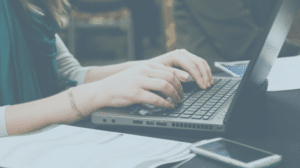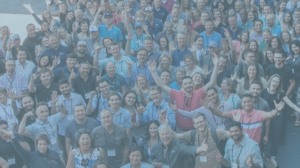Essential PC and Laptop Best Practices: 7 Tips for Protecting Your Devices, Data, and Productivity
As someone who helps onboard new team members and troubleshoot tech issues daily, I’ve seen firsthand how small habits can make a big difference in keeping your devices data safe. Whether you’re working from a coffee shop, hopping on a flight, or just stepping away from your desk, these laptop best practices aren’t just IT rules - they’re real-world safeguards that protect your productivity and peace of mind. Let’s dive in.
1. Travel Smart with Your Devices
When you’re on the move, your laptop is your lifeline. Losing it, or exposing it to damage, can derail your work and put data at risk.
Best practices:
- Carry-on is key. Always keep your laptop in your carry-on bag when flying. Checked luggage can get tossed around and sometimes lost.
- Avoid public USB charging ports. These can harbor malware. Instead:
- Use an AC adapter with a standard outlet.
- Bring a portable battery pack.
- Charge from your laptop’s USB port.
- Use a VPN on public Wi-Fi. Coffee shops, airports, and hotels are convenient, but unsecured networks can expose your data.
2. Password Security
Passwords are your first line of defense. Weak or reused credentials are one of the most common security gaps.
Best practices:
- Create unique passwords for every account
- Use a password manager to store and generate strong passwords
- Choose long passphrases over short, complex strings
- Enable multi-factor authentication (MFA) wherever possible
- Never share passwords or write them on sticky notes
3. Office Security Habits
One of the simplest habits is locking your computer when you step away. Think of it like locking your car when you grab the mail. It only takes a few seconds, but it prevents a world of risk.
How to lock quickly:
- Windows: Windows key + L
- Mac: Control + Command + Q
At the end of the day, clear your desk of papers, erase whiteboards, and securely store devices. These small steps protect sensitive information and keep your workspace clean.
4. Laptop & Mobile Device Care
Your devices are critical tools for your work, and a few simple habits can help keep them secure and performing well.
Best practices:
- Never leave laptops in vehicles: Extreme temperatures can damage hardware, and theft is a real risk.
- Install updates promptly: They patch security vulnerabilities and improve performance.
- Use strong authentication (PIN or biometrics) on mobile devices.
- Download apps only from official stores: Avoid jailbreaking or rooting devices - it increases vulnerability.
5. Software Best Practices
Installing software from questionable sources is one of the fastest ways to compromise security.
Best practices:
- Download only from trusted sources
- Watch for bloatware during installation and decline unnecessary add-ons
- Never use pirated or cracked software
6. Safe Web Browsing
Your browser is often the front door to your data - make sure it’s locked!
Best practices:
- Look for HTTPS (and the lock icon) before entering sensitive information.
- Be cautious with links and attachments. If something feels off, verify before clicking.
7. Updates & Reboots: Why They Matter
I understand the frustration - updates pop up at the worst times. But they’re critical for security and productivity. Updates patch vulnerabilities and keep your system running smoothly.
And yes, the old IT saying is true: “Have you tried turning it off and on again?” Rebooting clears memory and fixes many common issues. Aim to restart your machine every couple of days.
Start Here: The Top 3 Habits to Adopt Today
- Lock your screen every time you step away
- Run updates and reboot regularly
- Use MFA and a password manager for all accounts
Building these habits is the fastest way to strengthen your security and keep your devices running smoothly. If you’re looking for guidance on implementing these practices or want to explore how Stoneridge can help with broader security strategies, our team is ready to help. Connect with us to start the conversation.
Under the terms of this license, you are authorized to share and redistribute the content across various mediums, subject to adherence to the specified conditions: you must provide proper attribution to Stoneridge as the original creator in a manner that does not imply their endorsement of your use, the material is to be utilized solely for non-commercial purposes, and alterations, modifications, or derivative works based on the original material are strictly prohibited.
Responsibility rests with the licensee to ensure that their use of the material does not violate any other rights.





